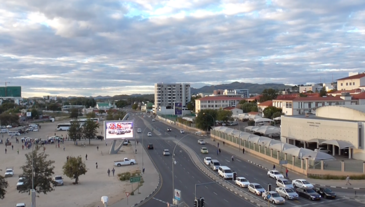Ort: Rotunde im Cartesium-Gebäude, Universität Bremen
Beginn: 05. Juni 2019, 14:00 Uhr
Ende: 05. Juni 2019, 16:00 Uhr
In what ways is the experience of whiteness shaped by different temporalities? How does that experience continue to shape the (post)-apartheid condition in Namibia? And, what does it mean to refuse time? In this paper I will try to answer these questions by looking at the complex intersection between whiteness and time in (post)-apartheid Namibia. In building on the idea that conventional propositions of linear time should be overthrown, I will explore the ways in which whiteness in the (post)-apartheid is mediated by the embodied and existential experience of time, in particular of apartheid and its multiple temporalities, spaces and geographies. Here I take cue from William Kentridge’s installation ‘The Refusal of Time’. In this work the artist argues that the experiences of colonialism, race and industrialisation in his native South Africa, and more widely in Africa, should be framed within a concept of time that is disjointed, in and out of sync, reversed and forwarded, speeded up and slowed down. In this sense, his work speaks of and to a time that cannot be set right, a time that is and remains out of joint. Here I argue that this conceptualisation of time can help our understanding of whiteness in the (post)-apartheid as both a lived and embodied experience mediated by multiple temporalities, as both in and out of time. In arguing for the need of a new orthography to describe the (post)apartheid condition I will present this paper through a series of punctum/a, moments which punctuates the (post)-apartheid condition and in which whiteness and the legacies of apartheid emerge with clarity
Mattia Fumanti is a social anthropologist with research experience in Namibia, Ghana and the UK. In Namibia his work has focused on youth, elites and the making of moral public spaces in post-apartheid urban contexts. Most recently he has completed an interdisciplinary research project on narratives of mental illness.

